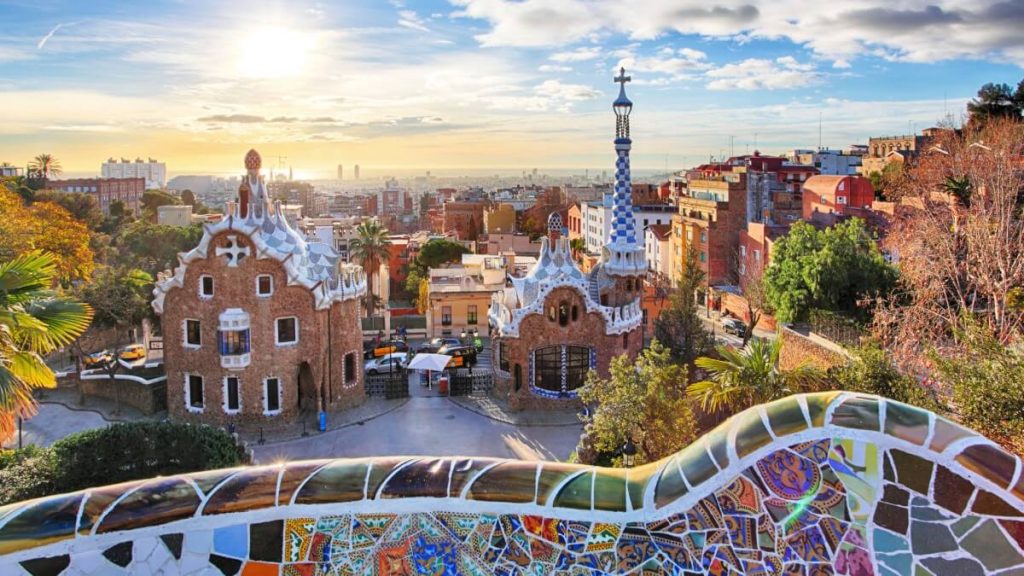Thursday, March 28, 2024

As of April 1, British tourists planning a getaway to one of Spain’s most beloved cities, Barcelona, will encounter an additional expense as the city increases its tourist tax. This levy, which is on top of the regional tourist tax introduced in 2012, has been subject to regular increases, making holidays to this vibrant city slightly more costly for its visitors.
Barcelona, renowned for its architectural marvels, rich cultural heritage, and bustling city life, attracts millions of visitors each year. However, the allure of Europe’s top city break destination now comes with a heightened price tag due to the tax hike. The decision to raise the city tax from 2.75 euros (£2.36) to 3.25 euros (£2.79) for stays of up to seven days is part of a broader strategy aimed at managing the city’s tourism sustainably.
This increase in tourist tax is not isolated to hotel stays; cruise passengers will also face a higher tax rate. For those spending just a day in the city, the fee will rise to 6.25 euros (£5.36), a move that underscores the city’s intent to promote “quality tourism” over quantity. With Barcelona welcoming approximately 32 million visitors annually, the city’s infrastructure and residents have felt the strain of overcrowding and escalating living costs.
The rationale behind the tax hike is multifaceted. Barcelona’s mayor has emphasized the city’s commitment to fostering a tourism sector that is both sustainable and respectful of the local community. The additional revenue generated from the tourist tax is earmarked for enhancing city services and infrastructure, which, in turn, benefits both residents and visitors.
The impact of tourism on Barcelona has been a contentious issue, with locals voicing concerns over the rising prices and the strain on public services. The city’s response, through the implementation of this tax, aims to address these challenges by curbing the adverse effects of mass tourism and ensuring that the tourism industry contributes positively to the city’s economy and well-being.
Barcelona is not alone in its approach to managing tourism through taxation. The Balearic Islands, another popular Spanish destination for British tourists, also imposes a tourist tax. This trend of implementing or increasing tourist taxes is observed in several European cities, reflecting a growing recognition of the need to balance tourism growth with environmental sustainability and community welfare.
The increased tourist tax in Barcelona raises important questions about the future of travel and tourism in Europe. As cities grapple with the dual challenges of promoting tourism and preserving their cultural and environmental heritage, the role of tourist taxes as a regulatory and revenue-generating tool becomes increasingly significant. The goal is to create a tourism model that is economically viable, socially responsible, and environmentally sustainable.
For British tourists, the tax increase is a reminder of the broader considerations that come with international travel. While the additional cost may seem minor, it represents a part of a larger effort to ensure that tourism remains a source of enjoyment and discovery, rather than a burden on destination cities. Tourists are encouraged to view the tax not just as an added expense, but as a contribution towards the preservation and enhancement of the destinations they cherish.
Looking ahead, the debate over tourist taxes and their impact on travel habits is likely to continue. Cities across Europe are watching closely as Barcelona navigates the challenges of sustainable tourism management. The success of such initiatives could inspire similar measures elsewhere, potentially reshaping the landscape of European tourism.
As Barcelona adjusts to its new tourist tax regime, the city serves as a case study in balancing the demands of a thriving tourism sector with the needs of its residents and the preservation of its cultural and natural assets. For tourists, understanding and supporting these efforts is part of being a responsible and conscientious traveler, ensuring that the cities they visit can continue to be enjoyed by generations to come.
Saturday, April 27, 2024
Saturday, April 27, 2024
Sunday, April 28, 2024